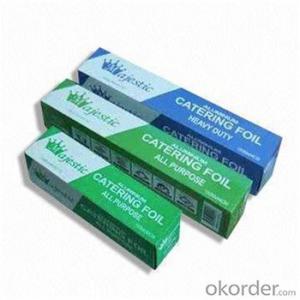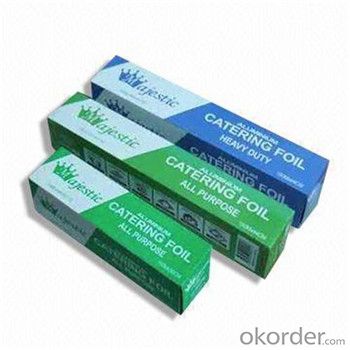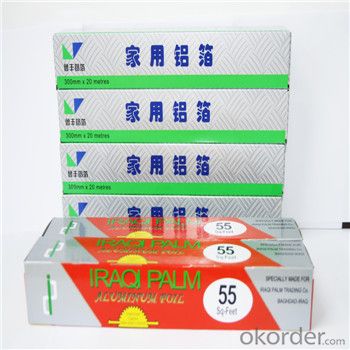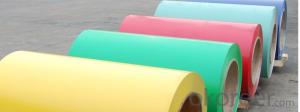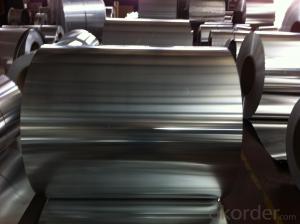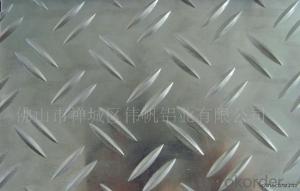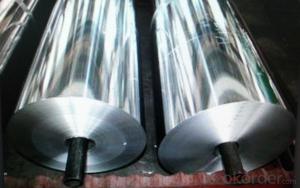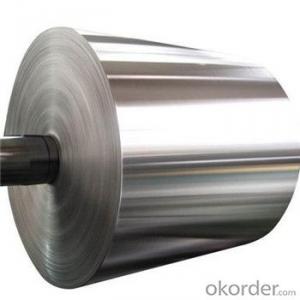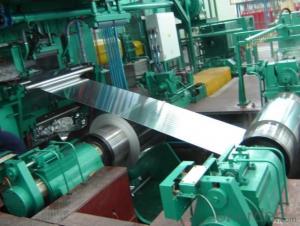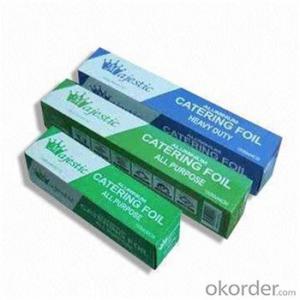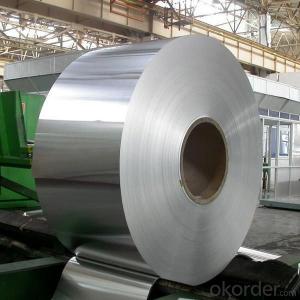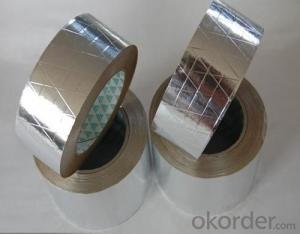Aluminum Sheets 4x8 Lowes - Jumbo Roll Household Aluminium Foil for Food Wrapping
- Loading Port:
- China main port
- Payment Terms:
- TT OR LC
- Min Order Qty:
- 3 m.t.
- Supply Capability:
- 10000 m.t./month
OKorder Service Pledge
OKorder Financial Service
You Might Also Like
Specification
1.Description of Aluminium Foil Jumbo Roll Household Foil for Food Wrapping
Denomination:Aluminium Foil For Food
Final Application:Aluminium Foil For Food
Alloy&Temper: 8011-O
Thickness: 0.03--0.007mm
Width:200mm--700mm
we are specialized in producting aluminum foil.
2.Why you want to choose us?
We've been specialized in aluminium foil for more than ten years, we know this product very well, we know what is good, what is the market price.
3.Specification and Application of Aluminium Foil Jumbo Roll Household Foil for Food Wrapping
Alloy: 8011
Temper: O
Thickness: 0.08-0.2mm
Core ID: 76mm, 150mm, 152mm
Width: Variety
Application: Food Wrapping
4.Pictures of Aluminium Foil Jumbo Roll Household Foil for Food Wrapping
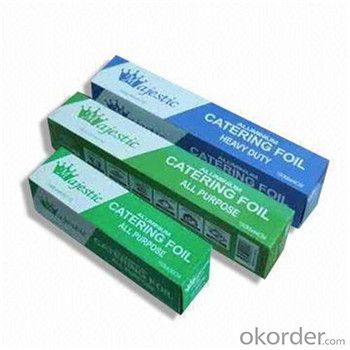
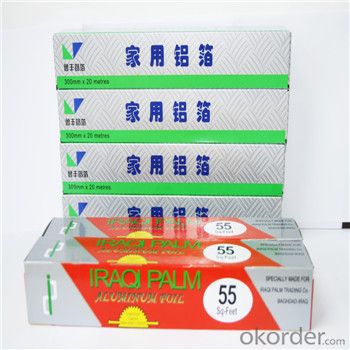
5.FAQ
1) How about your company?
A world class manufacturer & supplier of aluminum coil and alloy blanks. Aluminum production base is comprised of 18 aluminum annealers, 10 coil and foil mills, 4 continuous production lines, 2 hot rolling production line and 3 prepainted lines.
Export 5000 tons per month to Asia, America and Middle East. Always do the best for our clients.
2) Can you guarantee the quality of the products?
We are responsible for the quality of materials to get a long-term cooperation with clients in a reasonable period of time and we are glad to arrange and coordinate any third party inspection for you.
3) What is the delivery time after purchase?
35 day after receiving client’s deposit or correct LC
- Q: This question asks for an overview of the various types of coatings applied to aluminum profiles used in exterior cladding systems.
- <p>Aluminum profiles for exterior cladding are often coated to enhance their durability, weather resistance, and aesthetic appeal. Common types of coatings include: 1. Anodizing, which creates a protective oxide layer on the aluminum surface. 2. Powder coating, a popular method that provides a durable and colorful finish. 3. Fluorocarbon coating, known for its excellent weathering and UV resistance. 4. PVDF (Polyvinylidene Fluoride) coating, highly resistant to chemicals and suitable for marine environments. 5. Electrophoretic coating, which offers a smooth, even finish. 6. Hot-dip galvanizing, a process that coats aluminum with a protective layer of zinc. Each coating type has specific advantages and is chosen based on the performance requirements and environmental conditions of the project.</p>
- Q: What is the reflectivity of 101 aluminum sheets?
- The reflectivity of 101 aluminum sheets can vary depending on a few factors such as the surface finish, thickness, and any additional coatings or treatments applied to the sheets. Generally, aluminum has a high reflectivity, especially in the visible light spectrum. It can reflect around 80% to 90% of visible light, making it a popular material for reflective surfaces, mirrors, and various lighting applications. However, it is essential to note that the exact reflectivity of 101 aluminum sheets may differ based on specific manufacturing processes or variations in the material properties.
- Q: Are 101 aluminum sheets resistant to corrosion?
- Indeed, 101 aluminum sheets display remarkable resistance to corrosion. This is attributed to aluminum's inherent ability to form an oxide layer on its surface upon exposure to oxygen, which serves as a formidable shield against corrosion and safeguards the metal from deterioration. Furthermore, the 101 aluminum alloy is meticulously engineered with superior properties that bolster its resistance to corrosion, surpassing other aluminum alloys in this regard. Consequently, when confronted with the need for corrosion resistance, 101 aluminum sheets stand as a dependable option.
- Q: How do i prepare the aluminium sheet to paint with oils on it?Do I have to buy special aluminium or any kind will work?
- Paint will peel off from Aluminium. Embossing can be done.
- Q: What is the hardness of aluminum sheets?
- The hardness of aluminum sheets may differ based on the particular alloy and temper it has undergone processing to. Aluminum alloys are usually evaluated using the Rockwell hardness scale or the Brinell hardness scale. Typically, pure aluminum exhibits a low hardness rating, approximately 20-30 on the Rockwell B scale, whereas certain aluminum alloys can achieve a hardness level of up to 70 on the Rockwell C scale. However, it is essential to recognize that the hardness of aluminum can be further adjusted through different heat treatment methods, like annealing or tempering, which can have a significant effect on its ultimate hardness.
- Q: Can 101 aluminum sheets be bonded to other materials?
- Yes, 101 aluminum sheets can be bonded to other materials. Aluminum can be bonded using various methods such as adhesive bonding, welding, or mechanical fastening techniques. The choice of bonding method depends on the specific materials being bonded and the desired strength and durability of the bond.
- Q: Are the aluminum sheets suitable for decorative purposes?
- Yes, aluminum sheets are suitable for decorative purposes. Aluminum is a versatile material that can be easily shaped, cut, and manipulated to create various decorative elements. It is lightweight, durable, and resistant to corrosion, making it a popular choice for both indoor and outdoor applications. Aluminum sheets are available in a wide range of finishes, colors, and patterns, allowing for endless design possibilities. Whether it's for architectural accents, signage, furniture, or artwork, aluminum sheets can be used to enhance the aesthetic appeal of any space.
- Q: Can 101 aluminum sheets be used in electrical or electronic components?
- Yes, 101 aluminum sheets can be used in electrical or electronic components.
- Q: What are the cost considerations when purchasing aluminum sheets?
- There are various factors to keep in mind when buying aluminum sheets that affect their cost. Firstly, the price of aluminum sheets is determined by the current market conditions. Factors such as supply and demand, global economic conditions, and geopolitical events influence the price. Therefore, it is important to stay updated on market trends and fluctuations to ensure an informed purchasing decision. Another consideration is the quantity of aluminum sheets needed. Buying in bulk or larger quantities often results in lower costs per unit. However, it is crucial to accurately assess the required quantity to avoid excess inventory and unnecessary expenses. Additionally, the grade and quality of aluminum sheets can impact their price. Aluminum sheets come in various grades, each with specific properties and performance characteristics. Higher-grade aluminum sheets, which have superior strength or corrosion resistance, tend to be more expensive. It is important to evaluate the project's specific requirements to determine the appropriate grade of aluminum sheets needed. Transportation costs should also be taken into account. Depending on the supplier's location and the quantity ordered, shipping expenses can vary significantly. Exploring different shipping options and negotiating favorable terms can help minimize transportation costs. Lastly, additional costs such as processing, finishing, and customization should be considered. Some projects may require services like cutting, bending, or coating the aluminum sheets, which can add to the overall cost. However, these services may be necessary to meet specific project requirements. In conclusion, it is crucial to consider the current market price, required quantity, grade and quality, transportation costs, and any additional processing or customization needs when purchasing aluminum sheets. By carefully evaluating these factors, one can make an informed decision and ensure the best value for their investment.
- Q: How does aluminum sheet perform in extreme temperatures?
- Due to its unique properties, aluminum sheet exhibits exceptional performance in extreme temperatures. One of its key advantages is its remarkable thermal conductivity, enabling it to efficiently transfer heat. This characteristic allows aluminum sheet to quickly adapt to extreme temperatures, preventing the occurrence of warping or cracking that may be experienced with other materials. Moreover, aluminum possesses a high melting point of approximately 660 degrees Celsius, rendering it highly suitable for usage in high-temperature environments. It remains structurally stable, retaining its strength and integrity even when subjected to intense heat. Additionally, aluminum exhibits a low coefficient of thermal expansion, resulting in minimal expansion and contraction in response to temperature fluctuations. This particular attribute enables aluminum sheet to maintain its shape and dimensions even when exposed to drastic temperature changes. Furthermore, aluminum showcases exceptional corrosion resistance, further augmented by the formation of a natural oxide layer on its surface. This oxide layer serves as a protective barrier against chemical reactions, safeguarding the aluminum from deterioration even in harsh environments or extreme temperatures. In conclusion, aluminum sheet demonstrates outstanding performance in extreme temperatures due to its high thermal conductivity, high melting point, low coefficient of thermal expansion, and excellent corrosion resistance. These properties establish it as a reliable choice for a multitude of applications, including the aerospace, automotive, and industrial sectors, where the ability to perform under extreme temperatures is of utmost importance.
Send your message to us
Aluminum Sheets 4x8 Lowes - Jumbo Roll Household Aluminium Foil for Food Wrapping
- Loading Port:
- China main port
- Payment Terms:
- TT OR LC
- Min Order Qty:
- 3 m.t.
- Supply Capability:
- 10000 m.t./month
OKorder Service Pledge
OKorder Financial Service
Similar products
Hot products
Hot Searches
Related keywords
